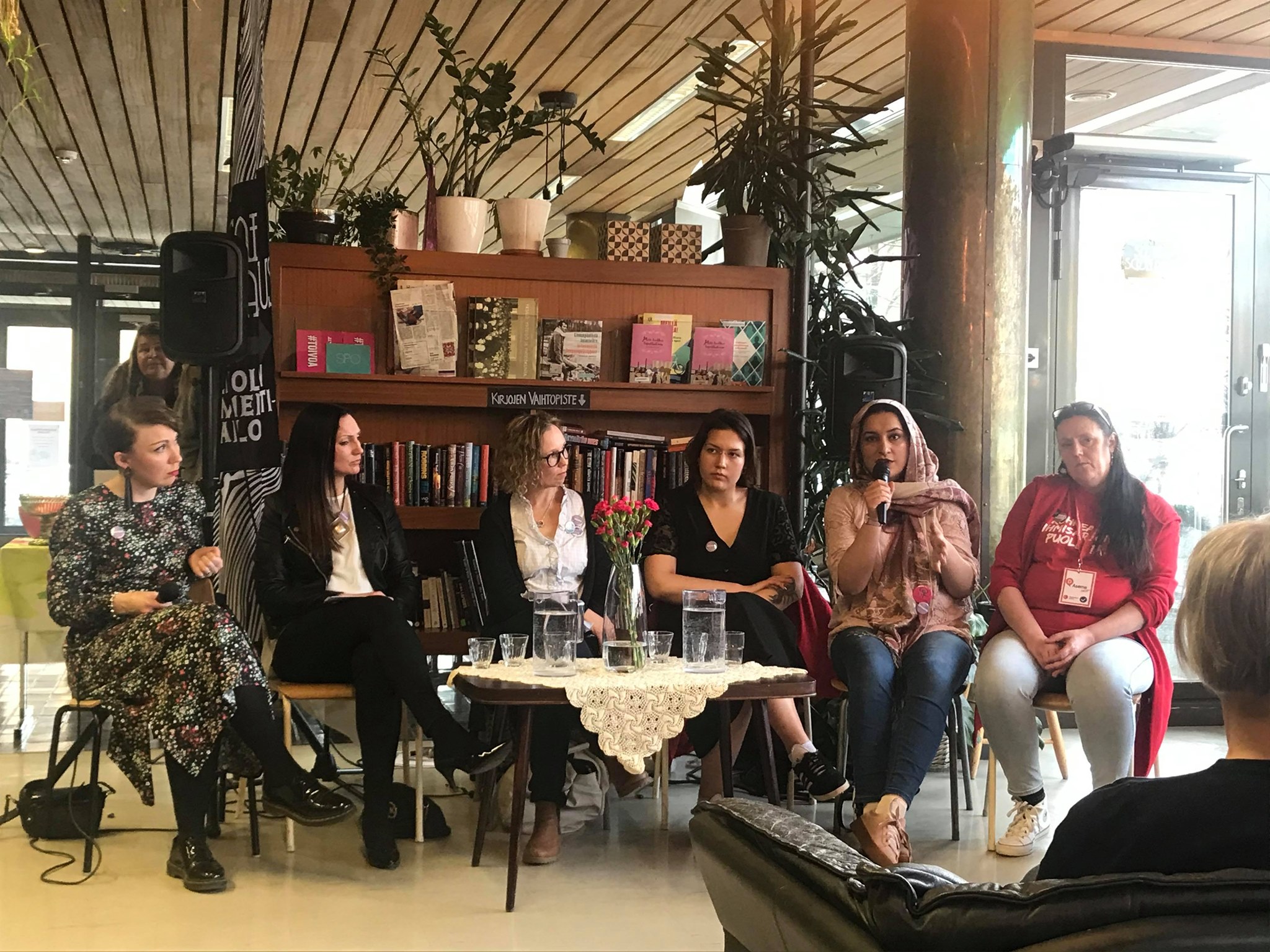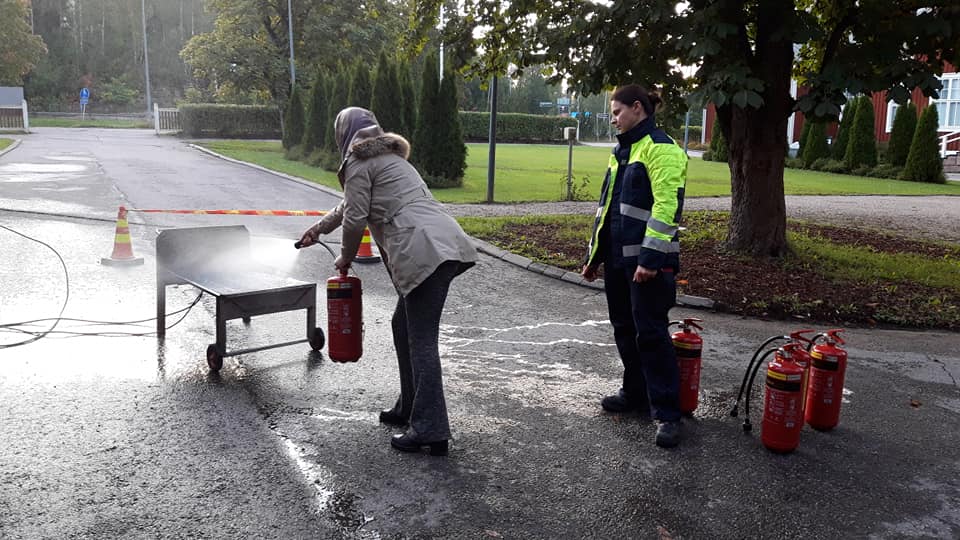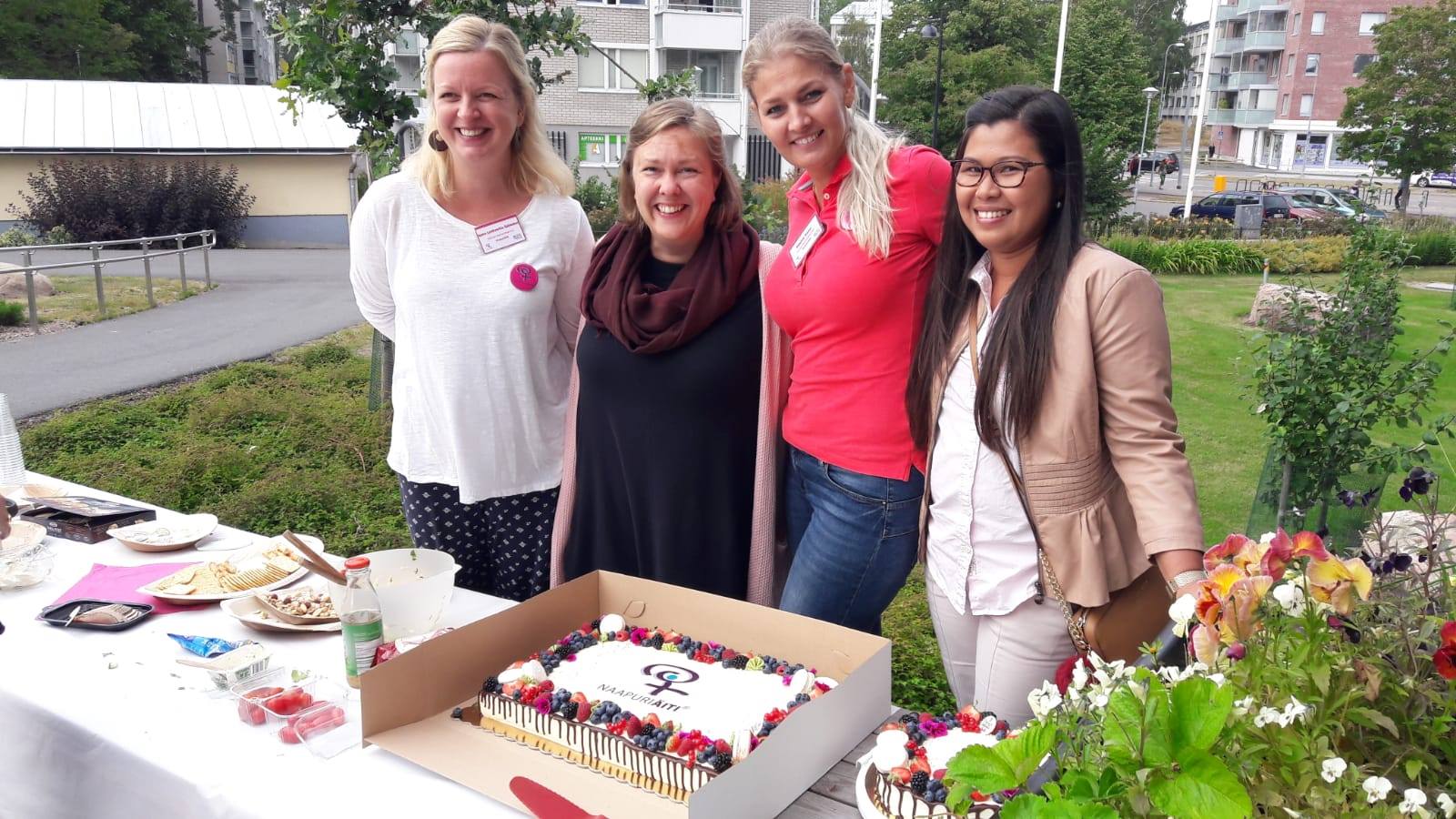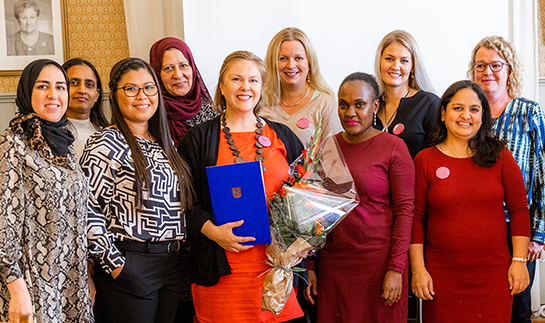Neighbourhood Mothers (Naapuriäiti in Finnish) is a social inclusion programme that is reaching out to women who moved to Finland and encouraging them to become active in society. Project is empowering women through strengthening otherwise often unrecognised skills, enabling women to get peer support, providing them with tools to organise activities in their own neighbourhoods, and methods to help others. Originally developed in Denmark, the Neighbourhood Mothers concept was brought to Finland in 2016 by the Nicehearts association.
Welcome to the world of Neighbourhood Mothers! This is a world of peer support, inclusion, equity and empowerment. The Neighbourhood Mothers project started in Finland in 2016 with funding from the European Social Fund. One project led to another, continuously developing the model to meet better the needs and circumstances in Finland. At the moment, the on-going project in Finland is active in five cities: Helsinki, Vantaa, Espoo, Lappeenranta and Imatra. In total, there are more than 300 trained Neighbourhood Mothers in Finland and the project is currently funded by the Finnish Funding Centre for Social Welfare and Health Organisations. Similar projects can also be found in different countries like Denmark, Sweden, Norway and Germany.
The Neighbourhood Mothers project in Finland is coordinated by the association Nicehearts ry, an NGO for women and girls.[1] The association was founded in 2001 in Vantaa. The fundamental values of Nicehearts are equality, equity, communality and joy. From a small voluntary based organisation, Nicehearts ry has grown into an active, professional and influential NGO with almost 30 employees in the Metropolitan area and East Karelia. Gender and cultural sensitivity are cross-cutting values in Nicehearts and used as basic method of work. This NGO is also doing integration work, but in its own Nicehearts style. But the core is that through different projects, Nicehearts is empowering girls and women, improving their wellbeing, supporting them to find their own path and who they really are in a safe and supporting space where they can use and expand their own skills, get help and finding new friends.

There are as many ways to be a Neighbourhood Mother as there are Neighbourhood Mothers. The network of Neighbourhood Mothers is in every way a diverse group of women from different backgrounds. Nevertheless, there are things in common for all of them. Our women have lived in Finland for a bit longer time and they want to be active in their own terms, in their own way. Many are struggling in finding their own path in this society and having quite small social network. Our biggest mission in the project team is to find the women and enable them to find their own way to be a Neighbourhood Mother.
The project starts with a Neighbourhood Mother-training. Normally it is organised locally but in times of social distancing also this model can be adjusted to offer trainings virtually. Trainings last seven weeks and provide the tools for participants to become a Neighbourhood Mother. The trainings cover various topics from support to recognise own skills and power, more information of Finnish and specific services and activities, to tools to help others as well as how to organise activities independently. Above all that, Neighbourhood Mothers are also learning how to take care of themselves, how to ask help and how to take care of one’s personal limits.
Many training sessions are conducted by guest professionals sharing their own expertise. This is one of the ways in which Nicehearts shares its large network and good cooperation methods with our Neighbourhood Mothers. The project team is also always there to support Neighbourhood Mothers, when they want to organise a thematic evening about domestic violence, peer support group for single mothers, a series of workshops on how to find one’s own motivation in the struggle of finding work or having free yoga course for women. Many participants have gathered important experience from this training, acquired new skills, developed their own network and gained more confidence.
The very essence of all the Neighbourhood Mothers projects around the world is to help others. Our Neighbourhood Mothers are carrying out a lot of voluntary help, especially to other women who have lived in Finland for a shorter time. The actual help can happen anywhere, for example in one’s own circle of acquaintances, in public transportation or conducted by the project. The project team receives requests from public services, when officials encounter clients with a very small social safety net and often with limited Finnish knowledge. Situations vary a lot, but the basic idea is that our Neighbourhood Mothers are voluntarily helping others in need. One needs a person to talk to in their own native language, others need guidance with managing the relationship between school and home, and another one might need actual guiding to find the location of a bank, the place of a leisure activity, social service office or any other place in a new environment. For various different reasons, going out in an unfamiliar environment with very little knowledge and experience of public transportation or local behavioural culture is especially challenging for women. That is why a little support and helping hand from someone is needed. And when that someone has a similar experience herself, the support is often much more reachable and effective. The project team is always there on the back of Neighbourhood Mothers to give support.

What is the benefit of participating? It is an important question that we received from a woman who saw our advert of a new course. This is voluntary work, so it does not involve monetary benefit. Instead, voluntary work in its best can give the mutual feeling of support, participation, inclusion, belonging, importance and hope. Our Neighbourhood Mothers are giving support to other people and Neighbourhood Mothers themselves have the support of other Neighbourhood Mothers and the project team. Many of the women in the training say, that they wish there was something like this when they came to Finland. But now they can be the ones who are supporting and welcoming new-comers. Through the project, women feel that they are part of a bigger network and that they are not alone: that they are an important part and actors in our society. Their efforts of voluntary work are highly appreciated and recognised not only inside the association, but also in public services and by many professionals. Neighbourhood Mothers are true experts on integration and their knowledge and experiences are a treasure when developing the society to the direction of true inclusion, respect and equity.
Many of the women joining the training do not feel that they can have an impact and that their voice would matter. Through the training and activities, the project is empowering women. Being able to help someone can really give the feeling of self-confidence. Many women had already, instinctively, acted kind of as Neighbourhood Mother even before joining the training, but not always recognising it as voluntary work nor the value of their actions. If we do not see that our actions, voice and presence can influence society around us, why would we use it? Why would we even try, if we cannot see our impact? This project is trying to show to women that everyone has the potential of being a change agent. But that potential needs a safe space to grow and find its form. It is a lot to ask from an individual to do it all by oneself. Society needs to be awake and open to be supportive and enable its members to flourish. That is a lot but not too much to ask from society, and that is why we as NGOs and the third sector in general can show the way. When there is no such thing as small help or action, there is more space for hope and finding one’s own way of being. The power of really being seen, heard and valued is huge. It often starts the snowball effect and a chain reaction. That is the power of our project as well, empowering one woman at a time.

The great thing about the project is not just the empowerment of women to find their skills and realising their potential, but also challenging society, services and the attitude of people. Our women are facing too much prejudice, patronising and discouragement. We, as a project, can offer a platform for different professionals to encounter our Neighbourhood Mothers as experts and as a group of women who have much to offer for planning and developing services as well as decision-making. Little by little, this exchange of experiences and conversations can lead to better mutual understanding. Our project team and Neighbourhood Mothers are often seen in panel discussions and local development committees of different public services. There are quite many Neighbourhood Mothers who have been employed by the public services and also some who have been signed in for elections to take part in political decision making. Nothing will stop our powerful Neighbourhood Mothers, and in future I am sure to see much more of them in different roles developing our society.
Liisa Kulta, Project Manager of the Neighbourhood Mothers project, Nicehearts Association
This article appears in the book The Power of Civic Ecosystems: How community spaces and their networks make our cities more cooperative, fair and resilient.


